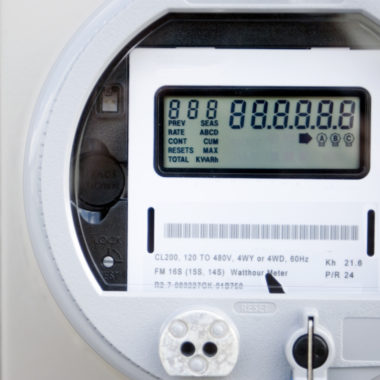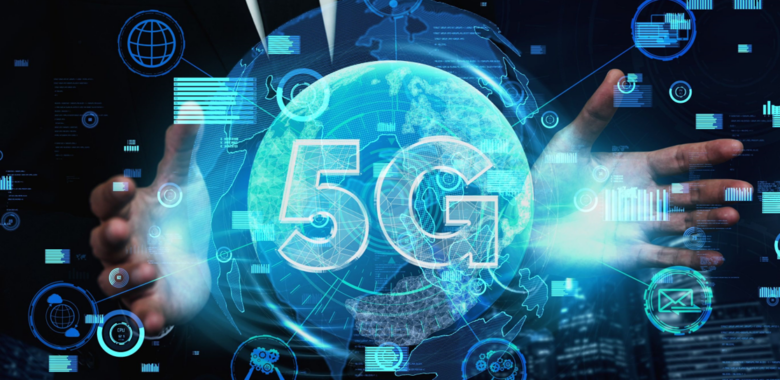As it stands today, the world needs to change its attitude to sustainability. As highlighted in the recent COP26 conference, human activity is causing unprecedented and potentially irreversible change to our environment, which is being driven by our production of harmful emissions and excessive energy consumption. Smart meters might be the first step in our journey to a sustainable future.
However, as stated by David Attenborough, the famed environmentalist and broadcaster, “We are, after all, the greatest problem solvers to have ever existed on Earth… Surely working together, we are powerful enough to save it.” And, the technologies we use to help monitor and control our energy consumption are set to play a critical role in our efforts against climate change.
Within this armoury of technology at our disposal, smart meters will stand as an indispensable tool in the development of a more sustainable future. According to Mordor Intelligence, the global total shipment of smart meters is estimated to reach 198.53 million units by 2026. What’s more, smart meter providers, such as Smart Metering Systems, have reported a 20% increase in smart meter installation since the beginning of the COVID-19 pandemic.
But smart meters aren’t just saving energy in the homes of consumers. In fact, the installation of these devices across the wider electrical grid could be crucial in the development of a smarter future.
How can smart meters make us more sustainable?
The value of these meters lie in their ability to provide the user with real-time data on their energy consumption. With this data being wirelessly transmitted to an in-house display or even a user’s smartphone, smart meters allow users to understand what energy they use, how they use it, and, most importantly, how they could consume their energy more efficiently.
Thankfully, the uptake in smart meters is steadily increasing. In the UK alone, there were 23.6 million smart and advanced meters in homes and small businesses by the end of 2020, representing a 12% increase from the previous year.
The development of ‘smart grids’
Aside from helping businesses and civilians consume their energy more efficiently, the widespread installation of smart meters has the potential to unlock a level of untouched energy efficiency in the form of a smart energy grid.
Unlike traditional energy grids, smart grids use different technologies, such as smart meters, sensors and networks, to increase the level of intelligence and efficiency at which the grid operates.
But why will smart grids help us be more sustainable? By 2050, 68% of the world’s population will be living in urban areas. As such, it’s necessary that these urban environments have a reliable and sustainable source of power.
With a smart grid, operators will be able to balance the flow of energy more efficiently throughout the grid. This is because, with the help of the grid’s sensors and smart meters, operators will be able to detect power demand surges and outages in real-time, adapting accordingly to ensure efficiency.
What’s more, smart grids can enable the smooth integration of renewable energy sources, such as solar panels. With improved energy infrastructure, operators will be able to effectively manage different renewable energy sources that are geographically scattered across the grid. What’s more, smart grids will enable providers to allow energy consumers to play a central role in the grid through selling extra energy storage they might have at home.
What is needed to ensure that they can help us build a sustainable future?
However, for this idea of the smart grid to become a reality, it’s crucial that the meters across the grid are upheld by two essential principles – reliable connectivity and robust cybersecurity:
Reliable connectivity – particularly when operating within a system where components constantly communicate with each other, it’s essential that smart meters are always connected. Any drop in connection could see a delay in the transmission of data to the utility provider, preventing it from running an energy grid at peak efficiency. But, through the use of technology such as IoT eSIMs, providers can ensure that their smart meters remain connected 24/7 over a typical 10 to 15 year lifespan.
Robust cybersecurity – the connected nature of smart meters can be viewed as a double-edged sword. While this connectivity enables the fast and accurate transfer of real-time data to utility providers, it also exposes smart meters to the risk of hacking. Such attacks present a very real threat to all parties, from the consumer to government agencies, as highlighted by the alleged power grid attacks waged between two large countries in 2019.
With this potential risk looming over energy providers, it’s critical that robust cybersecurity measures, such as giving smart meters their own digital identities, are in place to protect both providers and consumers alike.
While much more can be done to help bolster our efforts to protect and regenerate our planet smart technologies represent the first step in our journey to a sustainable future.
Want to find out more? Discover our latest smart metering technology here.



